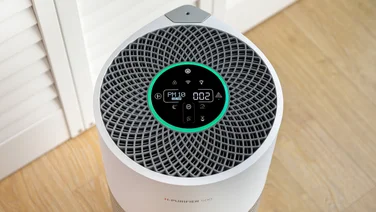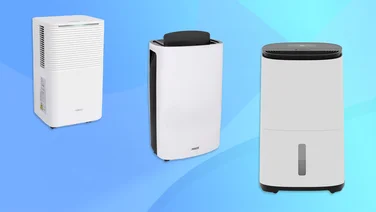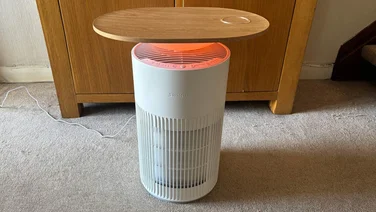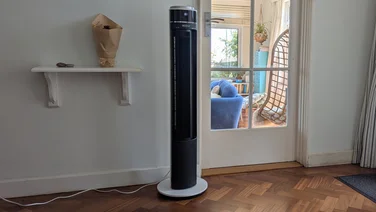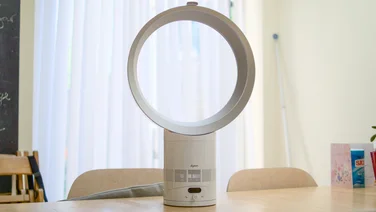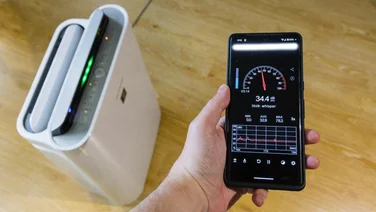To help us provide you with free impartial advice, we may earn a commission if you buy through links on our site. Learn more

You might be considering buying one of the best air purifiers to help clear the air in your home if you are finding it a little stuffy. These devices offer a number of benefits, including relieving symptoms of allergies and respiratory conditions such as asthma.
However, you may also be concerned about air purifiers potentially drying out the air in your home, leading to other issues such as dry skin. But is this concern warranted? Are air purifiers really responsible for drying the air and, if not, why might the air feel dry when you’re using one?
Our guide below will answer these questions, while also offering some potential solutions to dry air in your home.
Do air purifiers dry the air?
The simple answer to this is no, air purifiers do not dry out the air in your home. If the air in your home feels dry or, for instance, you wake up with a dry throat, the culprit will be something else.
Chris Michael, Managing Director of Meaco, says: “[Air purifiers] have no drying ability at all”. This is echoed by Sergey Nikolin, President at Product Air Heating & Cooling LLC, who adds that “an air purifier doesn’t dry or add moisture to the air, it just purifies it”.
Dyson’s Environmental Care Engineer, Shawn Navarednam, also reiterates that “air purifiers do not dry the air”, explaining that “they just circulate the air” and while “the relative humidity of the air remains the same, it gets distributed better”.
Why might the air feel dry while using an air purifier
That’s not to say that you aren’t imagining your dry air issue though. There are a number of reasons why the air in your home might feel dry, even if the air purifier isn’t one of them.
“If it’s not a warmer season when indoor humidity naturally drops, the cause [of dry air] might be constant heating (especially when relying a lot on space heaters), air conditioning, or poor ventilation,” Sergey Nikolin explains, adding: “nothing dries the air quite like heaters do, especially during winter when they run non-stop”.
HVAC technician and owner of airconditionerlab.com, Josh Mitchell, adds that “air purifiers don’t dry the air, but people sometimes think they do because they’re running in winter when the air is already dry from heating”. He says that “the real cause [of dry air] is usually a lack of humidity in the home” with “heaters and sealed-up windows cutting down on moisture”.
Chris Michael of Meaco also suggests heating is a big culprit when it comes to dry air, claiming “there are two main causes: having the heating turned up too high in the home in winter, and the outside weather – either snow and ice, or prolonged spells of dry weather”.
Meanwhile, Dyson’s Shawn Navarednam also suggests “heater usage, ventilation and the weather” are all contributing factors to air dryness.
A dehumidifier pulls excess moisture from the air by condensing water vapour. It’s designed to reduce humidity, make the air feel less damp and discourage mould, though this can make air feel drier.
An air purifier filters airborne particles such as dust and pollen. It doesn’t alter the air’s moisture content but its increased air circulation might lead to a perceived dryness.
A humidifier adds moisture to the air by releasing water vapour or mist. It’s used to increase humidity, making dry indoor air feel more comfortable and alleviating symptoms such as dry skin and irritated sinuses
What can we do to prevent the air at home feeling dry?
To tackle dry air at home, you may want to invest in a humidifier. HVAC engineer Josh Mitchell suggests that, if you’re deciding which appliance is right for you, “a humidifier might be a better fix if your skin is dry or you wake up with a dry throat”.
Humidifiers release water vapour or mist into the air, thus increasing humidity, and many monitor humidity levels with a hygrometer (something you can also buy separately), allowing for precise control of the air in your home. A healthy range is around 30 to 50% relative humidity (RH). Humidity becomes an issue when RH exceeds 60%.
Several simple habits can help prevent the air in your home feeling dry too, and you don’t always need a humidifier to add moisture.
Reducing heating usage or setting your heating to a lower temperature, especially during colder months, can limit the drying effect heating has on your home. You could also consider showering with the bathroom door slightly ajar to allow some steam to disperse into your home; drying washing indoors on a rack to release moisture into the air; or opening the dishwasher after a cycle to allow the steam to escape and help contribute to a more humid environment.
Adding some indoor plants can also help ease dry air, acting as a natural and aesthetically pleasing way to boost humidity through transpiration.

